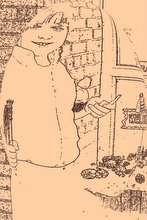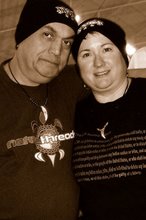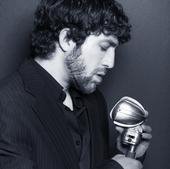
Anxiety Attacks Symptoms
What is anxiety attack symptoms? Anxiety attacks, also called panic attacks, are unexpected episodes of intense terror or fear. Anxiety attacks often come without any warning, and although the fear is generally irrational, the feelig of danger is very real. A person experiencing an anxiety attack will often feel as if they are about to die or pass out.
There are many people in the world who suffer from some form of anxiety and for these people these anxiety attacks may be mild or they could be very severe. While there are many ways of treating anxiety attacks, it’s first important to identify what are your Anxiety Attack Symptoms.
The physical symptoms of anxiety attacks that manifest themselves in the form of headaches, dizziness, lightheadedness, nausea, vomiting, diarrhea, sweating, tingling, pale complexion, numbness, difficulty in breathing, and sensations of tightness in the chest, neck, shoulders and or hands. All these anxiety attack symptoms are the body’s fight-or-flight reaction which involves the hormones, muscles and the heart.
The behavioral anxiety attack symptoms include pacing, trembling, general restlessness, hyperventilation, pressured speech, wringing of the hands, and even finger tapping. Then the cognitive anxiety attack symptoms include recurrent or obsessive thoughts, feelings of doom, and morbid thoughts of death, confusion or the inability to concentrate.
The emotional anxiety attack symptoms can include feelings of tension or nervousness, feeling agitated, overwrought, and feelings of unreality, panic, or even terror. Then there are also the anxiety attack symptoms where the person’s brain puts up a defense mechanism against the anxiety attacks.
These psychological defenses include repressing anxious thoughts or ideas out of the conscious awareness. Other anxiety attack symptoms is where the sufferer will transfer the source of their anxiety to an object or an event. Phobias are an example of this anxiety attack transference. Then there are the times that a person who suffers from anxiety attacks will rationalize their anxious feelings by claiming that ordinary people would feel the same way were they placed in the exact situation.
The other method that the brain will use as a defense against anxiety attacks manifests itself in the form of physical complaints and illnesses. In this case the anxiety attack symptoms involve recurrent headaches, an upset stomach, and muscle and joint pains.
Delusions are one other way of the brain trying to defend the sufferer from the anxiety attacks. For these anxiety attack symptoms the person can formulate conspiracy theories or other similar scenarios. This gives the person an emotional outlet for their feelings of anxiety.
It doesn’t really matter what form these anxiety attack symptoms show themselves in. What’s really important is once you identify that these are signs of anxiety attacks that you seek and receive help and treatment for this condition. By catching these anxiety attack symptoms early you have a chance to stop it progressing to a more severe condition like agoraphobia where you may become housebound due to your excessive anxiety attacks. So don’t delay if you feel that you suffer from Anxiety Attack Symptoms , go and see a qualified medical practitioner as soon as possible and get the proper help.
Causes of Anxiety Attacks
What are the causes of anxiety attacks, and risk factors for anxiety attacks and disorders? There are a number of complex factors that contribute to the development of anxiety disorders. Your environment, personality, family dynamics, brain chemistry, and genetics all can play a role. In addition, major life stressors such as financial difficulties, marital problems, or bereavement often trigger the onset of an anxiety disorder. It is important to realize that no single factor causes an anxiety disorder. The various anxiety risk factors are interrelated and can interact with and impact one another.
Read more about anxiety attack symptoms at: http://www.anxiety-depression-online.com



























No comments:
Post a Comment